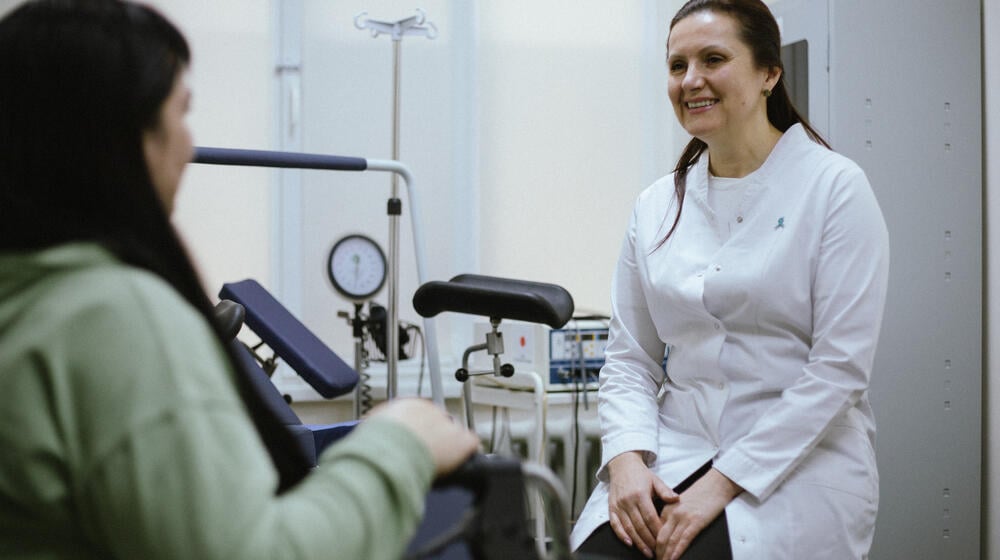“When I went to the gynecologist, I often struggled to climb onto the examination chair or had to ask the doctor for help. It made me feel even more uncomfortable being in such a situation. Regardless of whether a woman has a disability or not, every woman deserves quality medical services—it’s her right,” says Elena, a 31-year-old woman from Chișinău.
Elena was diagnosed with cerebral palsy at birth and uses a walker to move around. Despite the challenges of reaching medical facilities, she has never stopped attending regular gynecological check-ups.
"The most difficult part was in the medical office—nothing was adapted for people with disabilities. The gynecological chair was too high. Sometimes the doctor helped me; other times, I managed on my own. Visits to the gynecologist are already awkward, but in such situations, I felt even more uncomfortable. It wasn’t easy, but I tried to cope,” Elena shares.
Eight years ago, Elena became a mother to a baby boy. Pregnancy and childbirth brought her face-to-face with the challenges of the healthcare system’s infrastructure at that time:
"When I got pregnant, I started going to a medical facility in another district. The gynecological and ultrasound rooms were on the second floor. I had to support myself against the wall to climb the stairs or ask people for help. The examination bed was too high, and as my belly grew larger, it became even harder. On the day I gave birth, the delivery bed was also too high, so the doctors had to grab my arms and legs to move me from one bed to another. It felt like I had been thrown around.”
Despite these obstacles, Elena considers herself fortunate to have always been treated with respect and support by medical staff:
"My pregnancy and delivery went well. Throughout that time, I didn’t face offensive labels or criticism, as some acquaintances of mine did. On the contrary, after I gave birth, the doctors monitored our health, helped, and encouraged me. I didn’t feel abandoned because I, too, have the right to quality medical services."
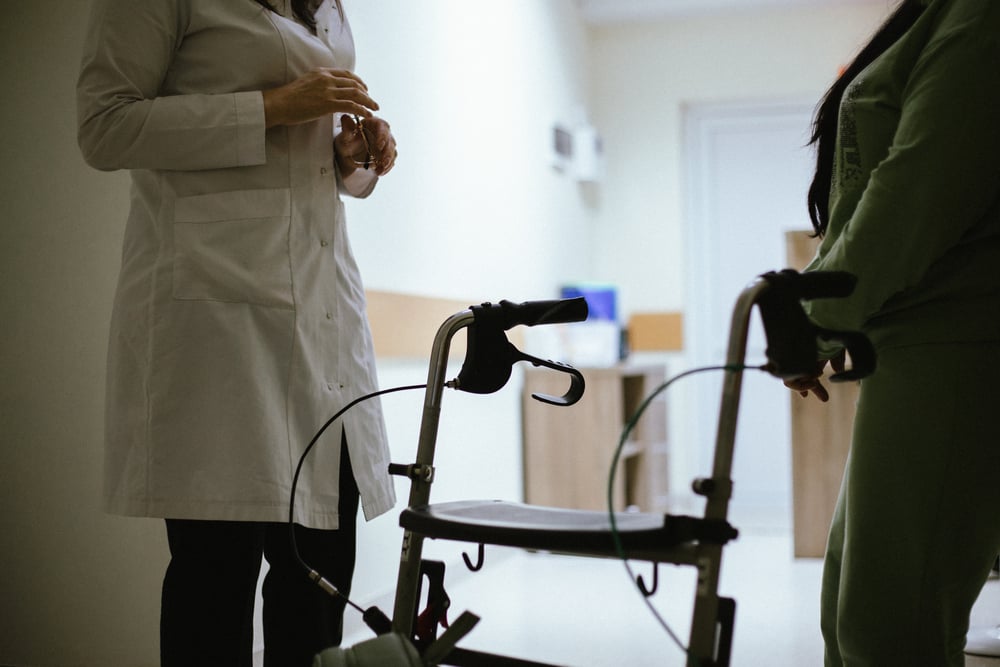
Lack of Accessible Medical Equipment – A Constant Challenge
Elena often encounters barriers due to the absence of adapted medical equipment. "Not long ago, I fractured my leg and needed physical therapy. However, I couldn’t benefit from it because the massage table was too high, and I couldn’t climb onto it. I asked the doctor for help, but he told me he didn’t have time for such things. He showed me what to do, and I ended up doing the procedures at home, on my own," she recalls.
Recently, Elena discovered the adapted gynecological chairs at the Mother and Child Institute. These chairs are designed for women with mobility disabilities, elderly women, those with excess weight, and pregnant women. They operate using a special mechanism that adjusts the equipment to meet the needs of each patient.
"Thanks to these chairs, medical consultations have become accessible and comfortable not only for patients but also for medical staff," says Elena, emphasizing the importance of equitable healthcare access.
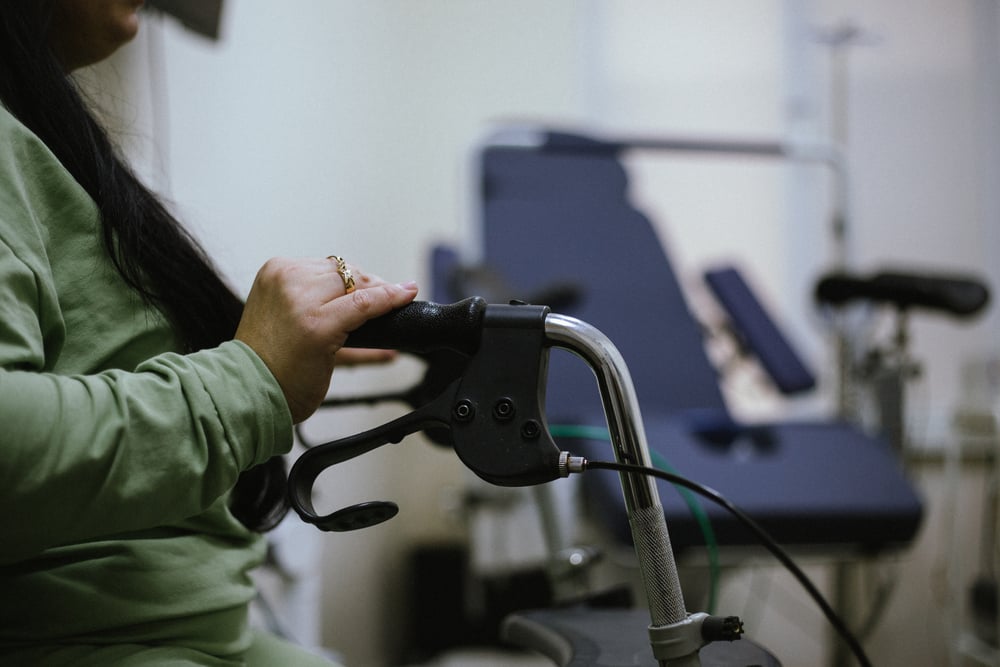
Making Healthcare More Inclusive: UNFPA’s Contribution
In the context of humanitarian response, between 2023 and 2024, with the support of its partners, UNFPA donated 325 adapted gynecological chairs to various municipal and district Perinatal Centers, primary healthcare facilities, Youth-Friendly Health Centers, and even penitentiary institutions.
"Every woman should have the right to visit a medical facility with accessible infrastructure, adapted equipment, and a welcoming, non-discriminatory atmosphere," says Elena.
She emphasizes the importance of expanding such resources: "These chairs should be available nationwide, especially in villages where many women with disabilities, including women refugees, need gynecological care. They are comfortable, modern, and make the experience far less awkward. Moreover, consultations are quicker and more efficient."
This initiative reflects a significant step forward in ensuring equitable healthcare access for all women, regardless of their physical abilities or location.
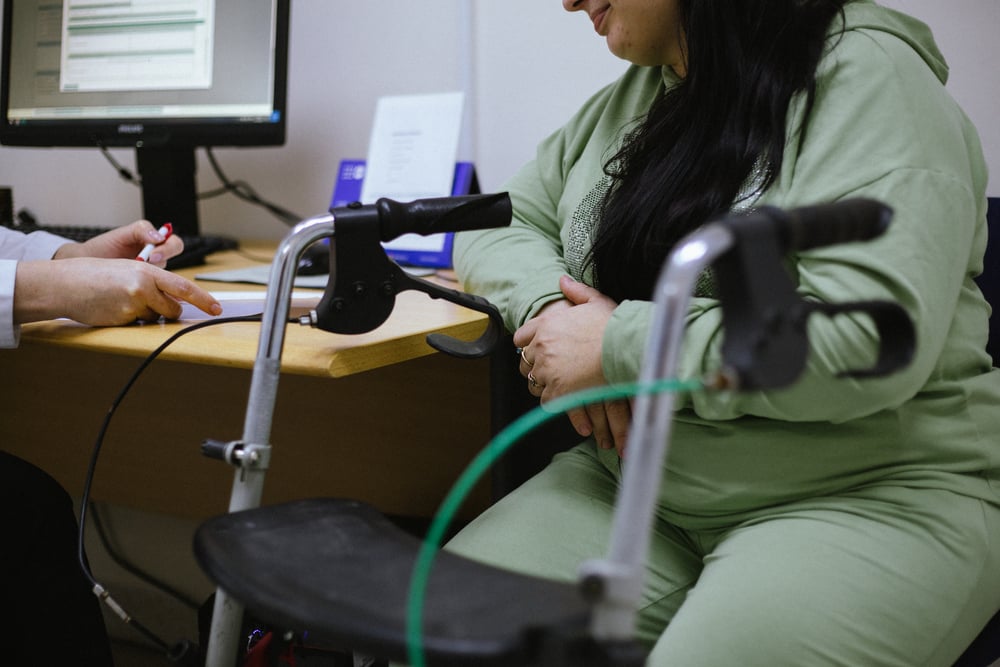
Improving Healthcare for Women with Disabilities: A Step Towards Empathy and Efficiency
Diana Valuța, Head of the Cervical Cancer Screening Implementation Unit, confirms this progress. She highlights that, until recently, healthcare providers often avoided examining women with mobility disabilities or were reluctant to do so, especially due to the time-consuming nature of the procedures and the long waiting times.
"Equipping medical institutions with high-performance, adapted equipment is a huge step forward for these women and the healthcare system as a whole. Additionally, doctors have become more empathetic and better prepared in this regard. Today, women with disabilities are more likely to visit their gynecologist, whether for pregnancy, colposcopy, or to address concerns. Beyond these procedures, it is essential that medical staff receive further training to know how to properly use the equipment, develop skills in its usage, and improve their communication and behavior with patients," emphasizes Diana Valuța.
This ongoing effort ensures that women with disabilities receive better, more inclusive care while helping healthcare providers enhance their knowledge and approach to these patients.
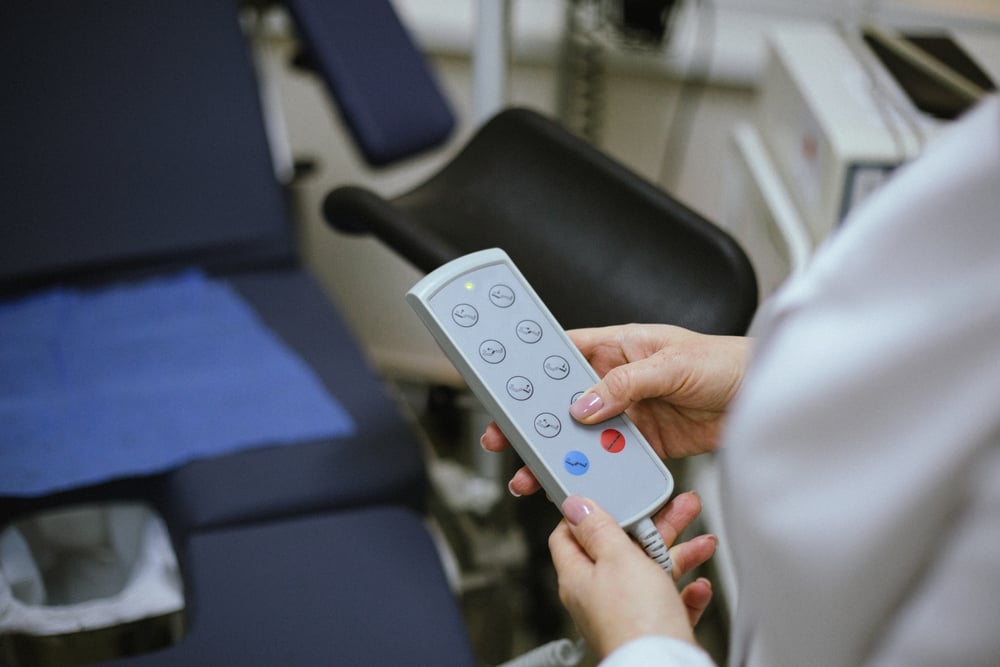
In 2023, according to the data from the National Bureau of Statistics, people with disabilities made up about 7% of the total population of the Republic of Moldova, which translates to over 161,000 individuals with disabilities. Half of them were women and girls.
On International Day of Persons with Disabilities, celebrated annually on December 3rd, the United Nations Population Fund (UNFPA) reiterates that everyone must have equal access to health rights, as stated in the UN Convention on the Rights of Persons with Disabilities.

